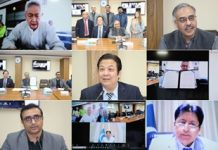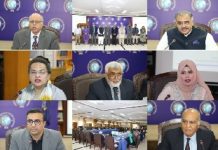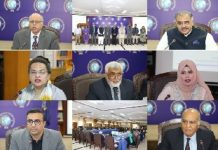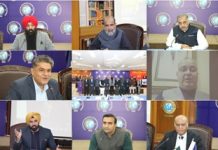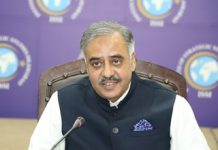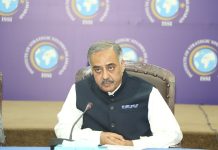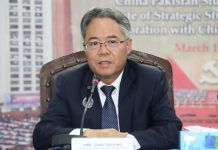Remarks by DG ISSI Ambassador Sohail Mahmood at
Inaugural Session of 4th Edition of Islamabad Conclave
“Pakistan and the Evolving Global Order”,
3 December 2024
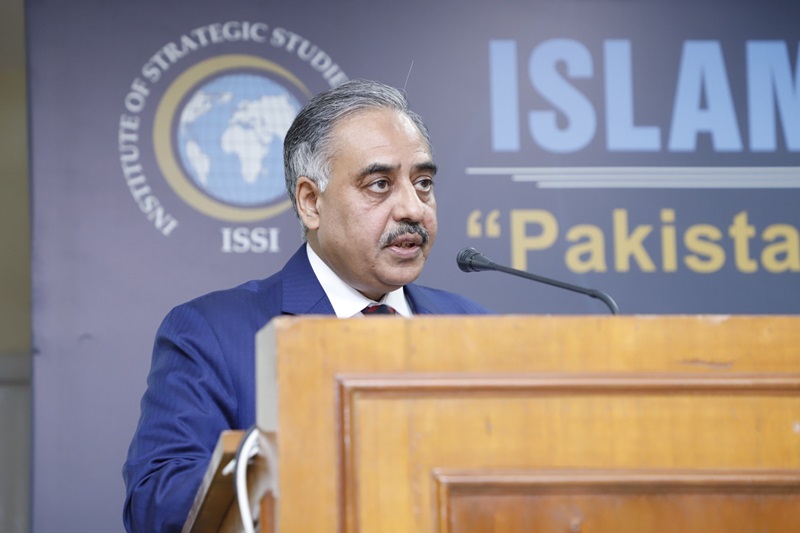
Honourable Ambassador Jalil Abbas Jilani, Chief Guest,
Ambassador Khalid Mahmood, Chairman BoG ISSI,
Excellencies
Esteemed Speakers,
Distinguished Guests,
AoA and good morning!
It is a distinct privilege to welcome all the distinguished guests to the Institute of Strategic Studies for this fourth edition of “Islamabad Conclave.” This is the ISSI’s annual flagship event, held in December every year.
We are honoured to have Ambassador Jalil Abbas Jilani, former Foreign Secretary and Foreign Minister of Pakistan, as chief guest. Given his deep knowledge and vast experience spanning well over four decades, our participants would hugely benefit from his views and perspectives on the Conclave’s theme.
We are profoundly grateful to all the esteemed speakers — from Pakistan and abroad — who would be sharing their insights during the various Working Sessions. This would enormously enrich the Conclave’s deliberations as we delve deeper into the pressing issues of our times and suggest the best way forward for Pakistan.
I would also like to take this opportunity to express my sincere appreciation to the ISSI team that has worked tirelessly to put this all together, from the conception to reality. I also warmly welcome the young volunteers from Islamabad’s major Universities (IIU; QAU; NDU; Bahria; and NUML).
Last, but not the least, our sincere gratitude to the Ministry of Foreign Affairs for its consistent support to ISSI, and for holding this Conclave in particular.
Distinguished participants,
The Institute of Strategic Studies is one of Pakistan’s premier think-tanks. Since its establishment in 1973, it has endeavoured to provide research-based inputs and serve as a platform for dialogue on matters related to regional and global environment, Pakistan’s foreign policy, national security, and strategic stability in South Asia.
In recent years, we have sharpened our focus on bridging the gap that has traditionally existed between the research and policy communities; further deepened our interface with MoFA to align research and advocacy work with Pakistan’s foreign policy imperatives, especially the Jammu and Kashmir dispute; enhanced outreach to key national stakeholders, including the youth, civil society, and private sector; and strengthened collaboration with regional and international partners, including counterpart think-tanks and Universities.
Upscaling our research work, we have published 6 edited books and 4 special reports in the last two years – piloted by our 5 Centres. This is over and above the regular work that the Institute does — from publishing Issue Briefs and Monographs to hosting Round-tables, Seminars, and International Conferences.
Going forward, ISSI will continue to closely focus on multi-stakeholder engagement for the operationalization of Pakistan’s ‘pivot to geo-economics’; forging partnerships with national think-tanks with niche area specialization; deepening engagement with NextGen International Security and IR scholars; and projecting Pakistan’s ‘soft power’ potential. Our endeavours to influence and impact the policy process would continue apace.
Distinguished participants,
For this year, the thematic focus of Islamabad Conclave is on “Pakistan and the Evolving Global Order.” This is well-considered.
We are living in a world characterized essentially by two ‘Ts’ — ‘Turbulence’ and ‘Transformation.’ Two raging wars in Europe and the Middle East; a genocide being committed against Palestinians in Gaza with complete impunity; over 56 active armed conflicts involving 92 countries across the globe; sharper nuclear rhetoric and a renewed momentum towards nuclear weapons development; steady erosion of arms control and disarmament regimes; unregulated growth and militarization of AI and other disruptive technologies; attempts to undermine economic interdependence through notions of “de-coupling” and “de-risking”; willful disregard by many of the perils of existential threats like climate change and several other non-traditional security challenges — all these are different manifestations of the “turbulence” side of the equation.
On the side of “transformation”, we see a trend toward multi-polarity. China’s rise, and the attempts to contain this rise, illustrate the return of major-power contestation as one of the defining features of today’s world. This competition is serving as the key driver of global instability, and impacting the dispositions and choices of nations across the globe. At this juncture, the process of multi-polarizing is complex, diverse, and uncertain. What is clear as crystal is that the unipolar moment in global politics is gone and that the final culmination point of perceived multi-polarity has not yet been reached. Meanwhile, we have a multiplicity of actors vying to create space for themselves and shape the emerging order. Theorists are advancing newer concepts and proposing novel categories. We see ‘Middle Powers’ and the ‘Global South’ beginning to acquire greater agency and assume a more coherent role. Most of them seek a world order that is inclusive and equitable, and prioritizes peace, stability, and sustainable development.
Pakistan — both as a Middle Power and an influential voice in the ‘Global South’ — espouses similar priorities. Averse to bloc politics, Pakistan envisions a world in which cooperation, rather than confrontation, is the primary driver. Pakistan also places greater premium on UN-centered multilateralism, as opposed to creation of smaller cliques or exclusive groupings. Equally, Pakistan favours such reform of the multilateral institutions that would make them more democratic, transparent, and accountable; not one that further fortifies the existing bastions of privilege, exclusivity, and immunity from reasonable scrutiny. As an elected member of the UN Security Council for the term 2025-26, Pakistan is poised to make its rightful contribution to the issues of peace and security on the global agenda.
Distinguished participants,
Over the next two days, in five separate Working Sessions, our eminent speakers will explore a whole range of themes related to the evolving global order and prescribe the pathway for Pakistan as it navigates this complex landscape. These are going to be exciting conversations.
I take this opportunity to, once again, thank our chief guest and all the practitioners, scholars, academics, experts, and young students for being a part of this enterprise. I assure everyone that this feast of ideas would be intellectually stimulating and would also generate practical recommendations for the consideration of decision-makers. So I recommend to everyone to imbibe as much as possible, and to enjoy as much as possible.
I thank you!




